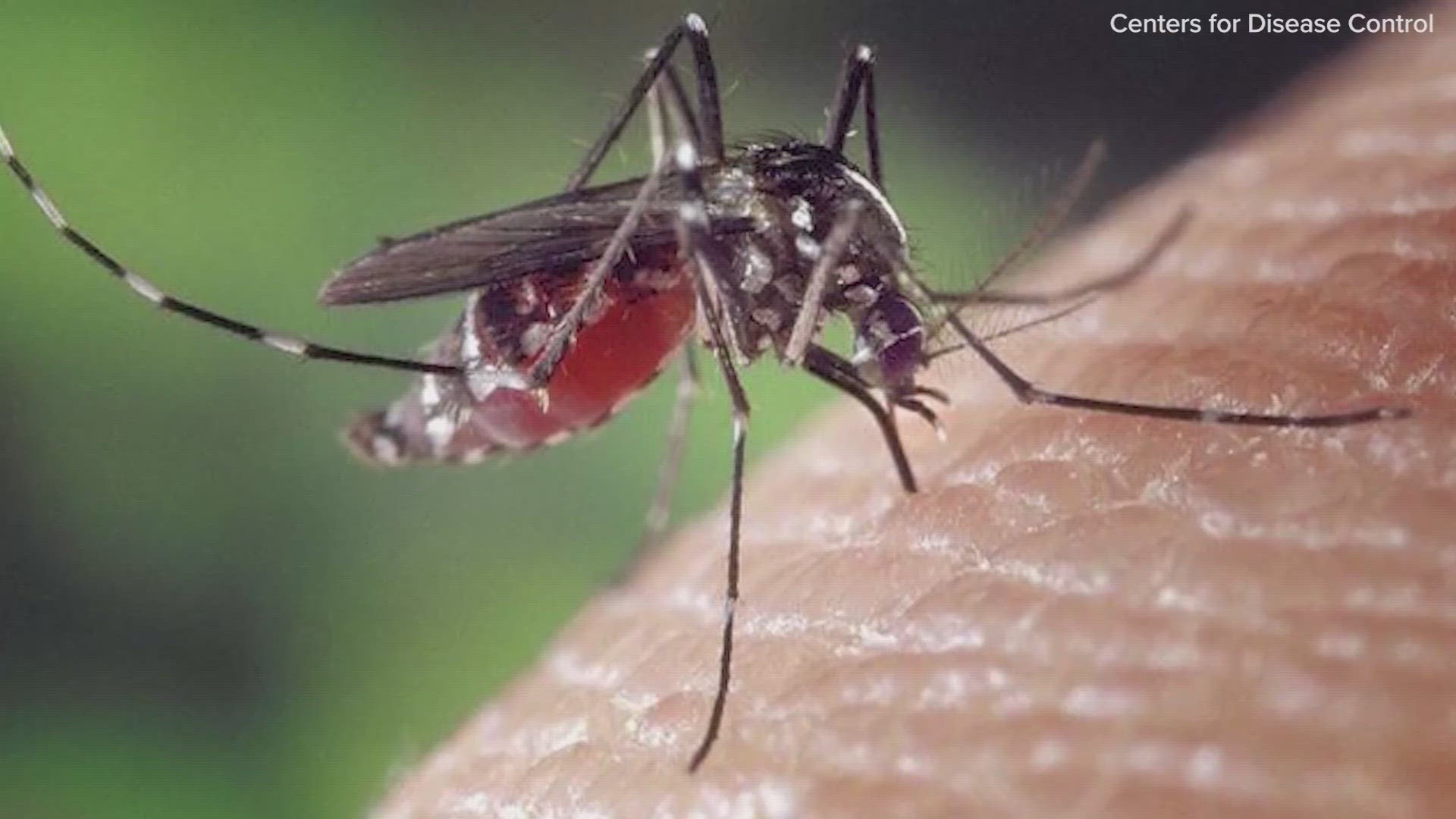STOCKTON, Calif. — The rapid spread of an invasive mosquito species has officials in San Joaquin County warning the public and increasing surveillance efforts.
According to the San Joaquin County Mosquito and Vector Control District, the Aedes species of mosquito has seen a surge in population in South Stockton, Manteca, Escalon and Ripon.
The species is known as the "Yellow Fever Mosquito" as they can transmit several viruses including dengue, chikungunya, Zika and Yellow Fever. Officials in San Joaquin County say the viruses are not currently known to be transmitted by mosquitoes in the county or state.
"Our biggest concern is that the mosquito itself is spreading quickly," said San Joaquin County Mosquito and Vector Control District public information officer Aaron Devencenzi. "They're quite a nuisance. Even without disease, they are difficult for us to control and people tend to get frustrated because it's really hard to get rid of them once they become well established."
In response to the spread, the Mosquito and Vector Control District will place extra traps to collect adult mosquitoes and mosquito eggs for analysis. Representatives of the district will go door-to-door in the areas seeing the highest populations of Aedes mosquitoes to inspect around homes.
People who are bitten by mosquitoes during daylight are asked to call the district as the Aedes mosquito is known to bite aggressively during the day.
Aedes mosquitoes are described as black and white and about 1/4 of an inch long. Officials say they frequently lay eggs in small water containers such as in dishes under potted plants, in bird baths, in ornamental fountains, in tin cans or inside discarded tires.
The species was first detected in the county in the Brookside area of Stockton in 2019.
"We've seen triple the amount of mosquitoes of this species this year as opposed to last year," said Devencenzi. "The populations of all mosquitoes are high and we've had a lot of West Nile virus this year, too. So two different things, but many mosquitoes."
Watch more from ABC10: West Nile Virus is here. Fight the bite.



















